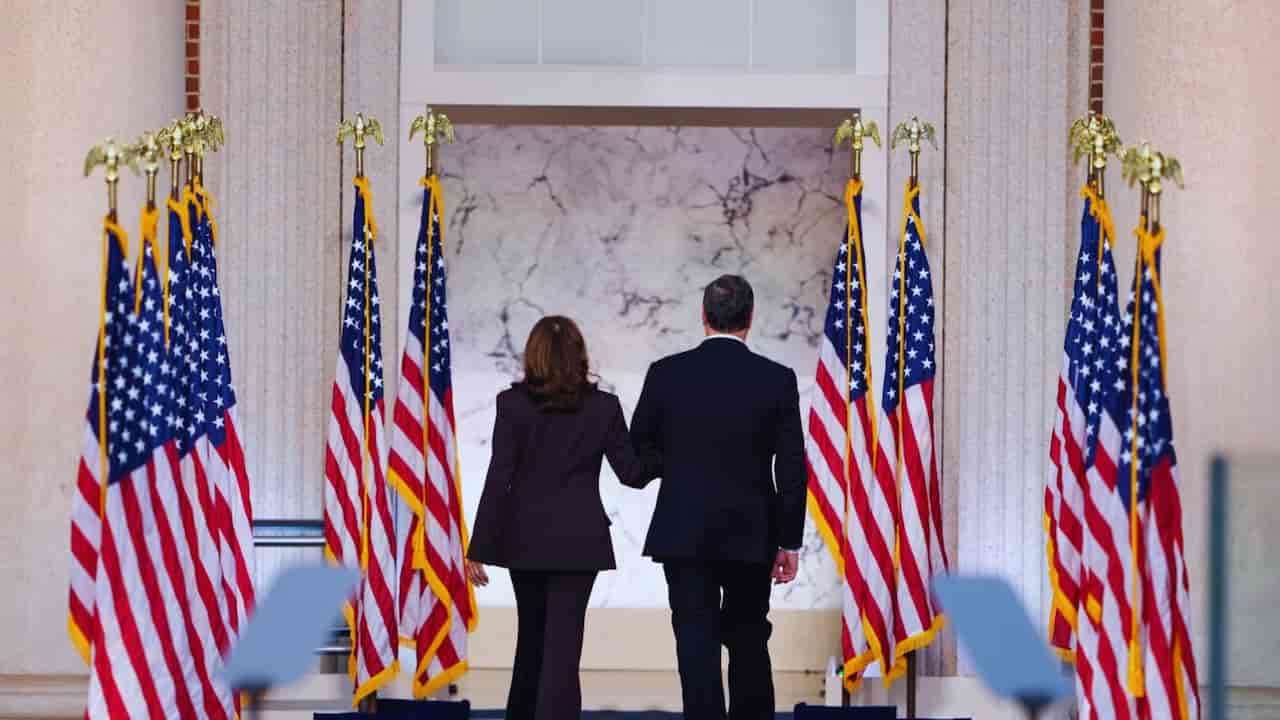Turning Point in American History: Harris Concedes as Trump Clinches Historic Second Term
Vice President Kamala Harris delivered a powerful concession speech at her alma mater, Howard University, marking the end of one of the most contentious presidential races in recent memory, in a dramatic turn of events that will go down in American political history.
“While I concede the election, I do not concede the fight that fueled this campaign,” declared Harris in a stirring address that lasted just under 15 minutes. These words echoed through the halls of Howard University, where supporters gathered to hear their candidate’s final campaign speech.
The race concluded with Donald Trump securing a remarkable 295 electoral votes, significantly surpassing the required 270 threshold. Harris finished with 226 electoral votes, falling short despite a campaign that emphasized unity and democratic values.
In a show of democratic tradition, Harris reached out to her opponent early Wednesday. During their conversation, she promised to help with the transition process and stressed the importance of serving all Americans. This gesture of political goodwill came after months of heated campaigning.
The victory proves even more remarkable given the unprecedented circumstances surrounding Trump’s campaign, including legal challenges and warnings from former staff members. At 78, he will become the oldest president to take the oath of office during the January 20 inauguration ceremony.
Global reactions poured in swiftly, with Prime Minister Narendra Modi among the first world leaders to congratulate the president-elect. “I had a great conversation with my friend, President Donald Trump, congratulating him on his spectacular victory,” Modi posted on X, highlighting the strong Indo-US relationship.
The transition process has already begun, with President Biden extending an invitation to Trump for a White House meeting. Biden, who had stepped aside in July to endorse Harris, praised her campaign efforts in a heartfelt statement, calling her appointment as vice president “the best decision I made.”
Looking ahead, questions loom about key policy shifts, particularly regarding international relations. Ukraine’s future support remains uncertain, as Trump and Vice President-elect JD Vance have questioned the billions in US assistance provided under the Biden administration.
In her concession speech, Harris offered a message of hope and resilience: “Only when it is dark enough, can you see the stars.” She urged supporters to persist in their fight for democratic values and principles, highlighting that despite the loss of the election, the broader struggle for freedom and opportunity persists.
Her speech at her alma mater underscored the historic nature of her campaign. Though she didn’t achieve her goal of becoming the first woman president, Harris encouraged young people to keep pushing boundaries: “You have power, and don’t you ever listen when anyone tells you something is impossible because it has never been done before.”
As the nation processes this historic election, both parties have committed to a peaceful transfer of power, a cornerstone of American democracy. The incoming administration faces significant challenges, from domestic policy issues to international relations, as they prepare to take office in January.
The election’s outcome represents more than just a change in leadership; it signals a pivotal moment in American politics that will likely influence domestic and international policy for years to come. As the country moves forward, the focus shifts to the transition process and the implementation of the new administration’s agenda.
